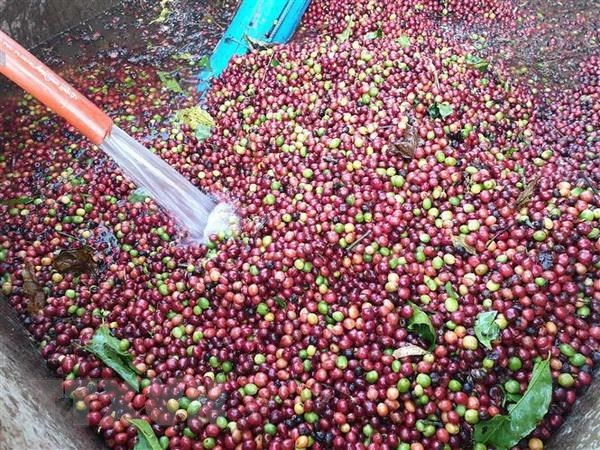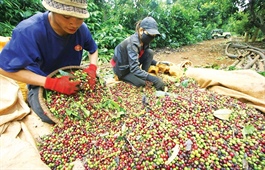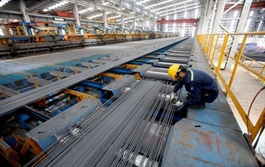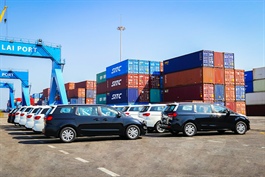Vietnam develops high-quality coffee
Vietnam develops high-quality coffee
The national project on developing high-quality coffee has helped businesses and farmers apply technologies in farming, cope with climate change, reduce production costs and improve economic efficiency in coffee production, heard a conference held in Buon Ma Thuot city, the Central Highlands province of Dak Lak, on December 29.

Illustrative image (Photo: VNA)
|
The national project on developing high-quality coffee has helped businesses and farmers apply technologies in farming, cope with climate change, reduce production costs and improve economic efficiency in coffee production, heard a conference held in Buon Ma Thuot city, the Central Highlands province of Dak Lak, on December 29.
The project has also strengthened connectivity between businesses, cooperatives and farmers, while building brand names.
According to the Ministry of Agriculture and Rural Development, Vietnam is one of the biggest coffee producers in general, and the biggest producer of robusta in particular in the world.
Vietnamese coffee has been shipped to 80 countries and territories, with revenue amounting to 2.85 billion USD in 2019, making up 7.8 percent of the world’s coffee export value.The domestic coffee sector has generated jobs for more than 600,000 households, contributing to socio-economic development and poverty reduction in the Central Highlands and Northwestern regions, and others.
Thanks to the Government’s policies and efforts by enterprises and farms, coffee export turnover accounts for some 15 percent in the country’s total agricultural export revenue, and coffee contributes more than 10 percent of the agricultural sector’s GDP.In support of the coffee sector, the Prime Minister approved Decision No. 787/QD-TTg dated June 5, 2017 to add coffee to the list of national products under the National Product Development Programme by 2020.
The project on high-quality coffee development (2018-2020) aims to promote high-quality, competitive and high value-added products.Under the project, coffee productivity has increased rapidly, averaging 2.8 tonnes per ha, and the rate of intensively processed coffee expanded from 5 percent five years ago to 12 percent in 2020, according to Deputy Minister of Agriculture and Rural Development Le Quoc Doanh.

























